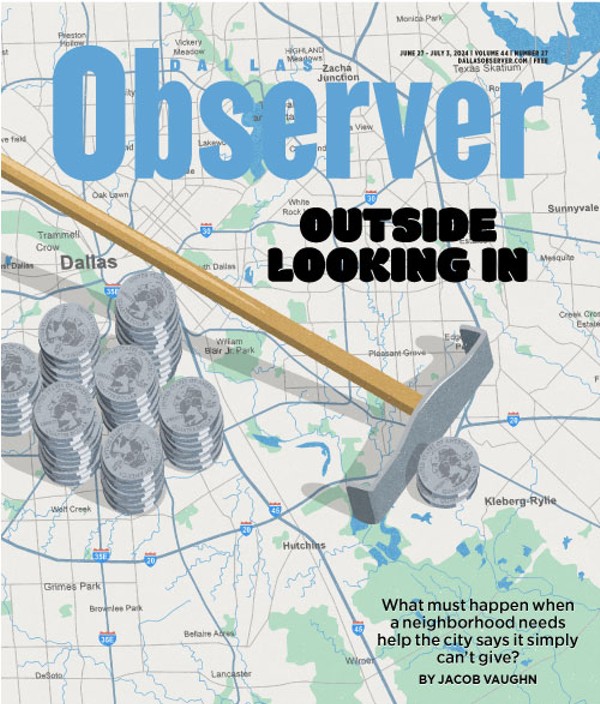The irony is that "indie" has, for the most part, become merely a stylistic term rather than the powerful label it once was--a sort of linguistic badge worn by a universe of artists who eschewed music's politics as usual. For indie bands, record deals, when they existed, were with small, independent, office-in-the-basement operations and never major labels. Things, of course, have changed. Almost every big name in the indie-rock echelon is spoken for by a record label, and often by a major. For Jimmy Eat World, one of the few emo standard-bearers to remain unsigned, this fact could be the signal of impending artistic Armageddon. Hailing from Mesa, Arizona, the group lacks any sort of American recording contract. Its members, however, aren't sweating the situation.
"Our primary concern is making our next record," says singer-guitarist Jim Adkins. "We're doing it on our own. After that, we'll figure out the label thing."
Adkins' seeming ambivalence toward signing the dotted line with some third-party entity makes sense considering the textbook treatment the band received on its first voyage out, a two-album deal with Capitol that expired after the release of Clarity in 1999. Though the deal hardly resulted in any blockbuster-type breakout, it provided just the push the band needed to continue rolling on its own. Jimmy Eat World is big enough to tour without difficulty, and--more important--equipped with a bankroll fat enough to fund its own recording sessions. It might be easy for Adkins, then, to feel that Jimmy Eat World is fully capable of operating completely autonomously.
It's an idea that pleases him.
It means, among other things, that he and his bandmates (bassist Rick Burch, drummer Zach Lind, and guitarist Tom Linton) can do pretty much what they like, when they like. This month, for example, they spent a few days recording in Los Angeles, then took a trip to New York City for this year's CMJ New Music Marathon, and later, they'll return to L.A. for more recording. Without a label to hover over it while in the studio, Jimmy Eat World hopes to seize the freedom afforded by its lack of a contract.
"You're not even listening to anyone's creative input or suggestions. It's not even an option," Adkins says, as he reflects on his band's control over its next record. "It's extremely cool for us, for the record-making process. It will be interesting to see if it works. I know that labels like to feel included, like a part of making a record."
Lack of a recording contract hasn't kept Jimmy Eat World from releasing a couple of albums itself in recent months. Boston's Big Wheel Recreation recently issued a singles compilation, simply titled Singles, that collected many of the band's previously out-of-print tracks from various seven-inches. It also issued three new songs on a split EP with Australia's Jebediah (who joins Jimmy Eat World on its current tour). This recent output helped kick the rumor mills into overdrive: Talk of a potential long-term alliance between the label and the band has been spread by Internet gossips. According to Adkins, it's just the latest installment in a string of signing rumors.
"People love to talk," he says of the glut of misinformation that surrounds his band. "We have been humoring different labels and listening to their spiel. People at different labels have expressed interest. I guess people hear that we are talking to somebody or we had lunch with somebody once, then the telephone game starts from there. And all of a sudden we're signed to MCA for six records and $1 million."
When the band does choose a suitor, it will certainly do so carefully. None of them, Adkins says, want to repeat the experience they had with Capitol Records. Though there's no bitter blood between the band and its former imprint, Adkins says Jimmy Eat World couldn't have been freed from the company at a better time.
"Capitol is just a fucking mess right now. We didn't really sign all that spectacular of a deal to begin with," he says. "They got a new president, and every little head of every department since we were there has left the company or switched job descriptions, so by the end of the deal there, every small relationship we had built with anybody at the label was gone. We were pretty much invisible there, and it wasn't going to get any better. If you are on a major label and nobody knows who you are, it's just a bad situation."
While things deteriorated on a business level at Capitol, there wasn't a whole lot Jimmy Eat World could complain about artistically. Though complaints of heavy-handed A&R men--especially when voiced from the ranks of traditionally underground artists--are a rock-and-roll cliché on par with breast-flashing groupies, Adkins' crew didn't run into such hassles during its tenure with the label. In fact, after the meager returns on 1996's Static Prevails, Capitol bean counters viewed Jimmy Eat World as a lame duck. With just one record left in its commitment, the band fell between the cracks as the company turned its attention toward other acts with more mainstream potential. Many bands would have withered under such a frigid reception from their record label, but Jimmy Eat World flourished.
"Capitol pretty much wrote us off before they put us in the studio to make Clarity. Our A&R guy came down to the studio once, and that was to get his picture taken for Billboard," Adkins says. "Capitol didn't give a shit about us. It was actually fun. We had all the benefits of making a record on a major label and none of the bullshit, like having to take two hours of your day to play what you're working on for them."
Though Jimmy Eat World will enjoy an even higher degree of freedom when it ventures into the studio than it did in the hands-off Clarity sessions, that doesn't mean it'll let things slide creatively. On its latest songs, Adkins says, the act backs off the intricate noodling that marked its early explorations through the world of post-hardcore. The stylistic change makes its newest batch of songs sit closer to cheery pop than anything that preceded them--but their simplicity shouldn't be mistaken for a lack of effort: The band's move toward stripped-down numbers was just as demanding as its jaunt through complex arrangements.
"Everything is disgustingly catchy and straight ahead," Adkins jokes. "I guess it's sort of like an elaboration of the stuff that was leaning toward simple on the last record. On our new stuff, rather than challenging ourselves [by] getting real experimental, we kind of went the other direction, challenging ourselves by getting very simple."
If nothing else, the band's plan to sandwich a short tour between its recording sessions proves its confidence. It's one thing to risk facing post-tour burnout in the studio when you're spending a faraway record company's money and have a boundless budget; it's quite another when you're footing the bill yourself and need to use each moment wisely. With the tour kept to only two and a half weeks, Adkins says his band will avoid many of the problems that arise with touring--namely, fatigue. In fact, he sees the return to the studio as the easiest leg of the journey.
"It's such a different thing," he says. "Hanging out in the studio all day will be a welcome, relaxing time after the tour. I'm thinking it's going to be therapeutic, if anything."
Occasional road weariness aside--Adkins' voice gave out during a couple of dates on the band's last tour with Sense Field ("That's never happened before. I felt so bad, too," he moans)--Jimmy Eat World seems as healthy as ever. It's not just the ballsy rock talk coming from the mouths of cocky rockers, though; Jimmy Eat World has proven its ability to survive outside of the system.
"It's kind of exciting. If you get too comfortable, you don't have any motivation," Adkins says. "We can function and do our thing without help. We just need someone to put out our record.
"It'd be nice," he adds, "if they could pay for us to go to Australia in the process. But, whatever."










